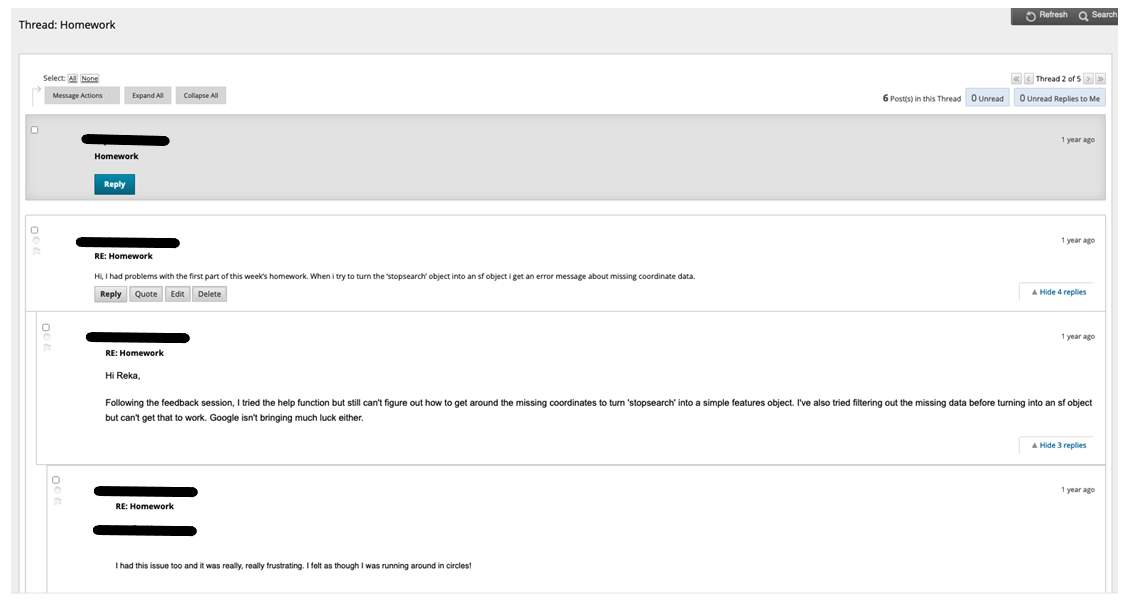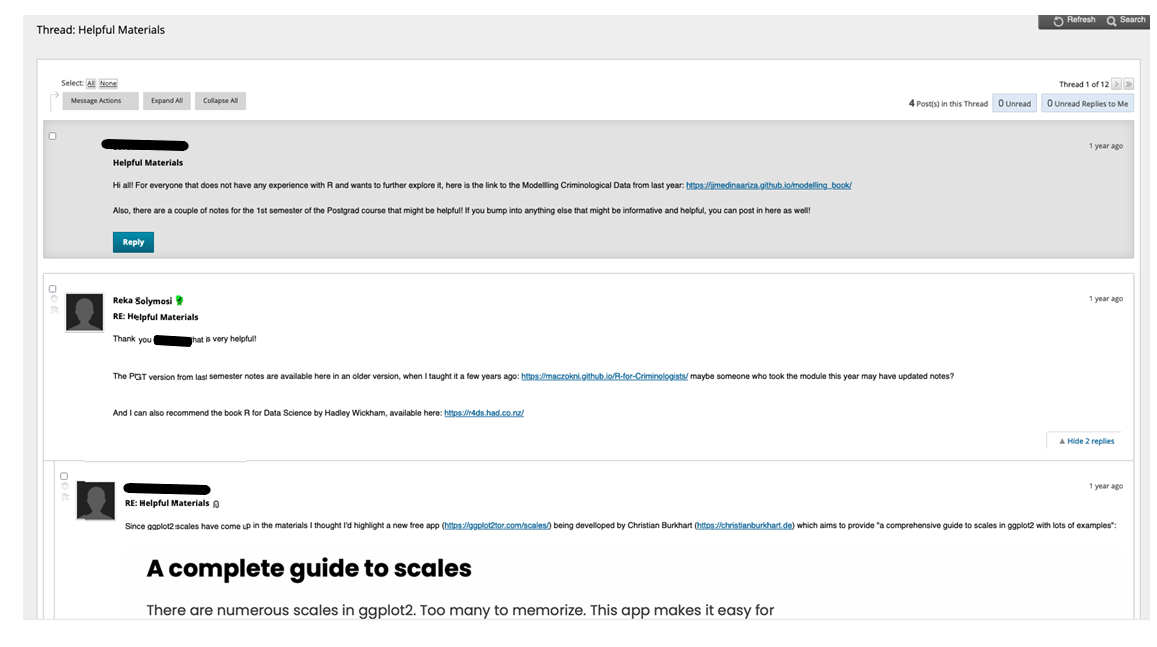Teacher of the Year 2021 (Humanities): an evidence-based approach
 Dr Réka Solymosi is a Senior Lecturer in Quantitative Methods within the School of Social Sciences, an Honorary Lecturer at University College London, and a member of the Software Sustainability Institute. She joined the University in 2016 after a period working as a data analyst with Transport for London. Her research focuses on making use of new forms of data to gain insight into people’s behaviour and subjective experiences, particularly focusing on crime, victimisation, transport and spatial research. Réka was awarded Teacher of the Year 2021 for the Faculty of Humanities (one of the University’s annual Distinguished Achievement Awards).
Dr Réka Solymosi is a Senior Lecturer in Quantitative Methods within the School of Social Sciences, an Honorary Lecturer at University College London, and a member of the Software Sustainability Institute. She joined the University in 2016 after a period working as a data analyst with Transport for London. Her research focuses on making use of new forms of data to gain insight into people’s behaviour and subjective experiences, particularly focusing on crime, victimisation, transport and spatial research. Réka was awarded Teacher of the Year 2021 for the Faculty of Humanities (one of the University’s annual Distinguished Achievement Awards).
In the first of this two-part feature on Réka’s practice, she shares some practical tips she has found effective in her teaching of data literacy in social science study and practice.
An evidence-based approach
Through my teaching I aim to promote an evidence-based approach, whether that be within my academic subject of data literacy or my own pedagogical practice. I find it’s helpful, both mentally and in practice, for me to have a firm foundation for the teaching I do. Setting aside time for attending conferences, talks and roundtables on teaching methods creates a kind of baseline peer support which informs how I teach. Learning from colleagues in the field who are passionate about promoting data literacy and quantitative analysis skills has been so important in improving my own knowledge and approach. When convening a course, I make a conscious effort to implement what I have learned.
The key problem with teaching quantitative data and statistics to social science students, is that many of them feel like they ‘didn’t pick this topic – [they] wanted to do ‘Maths’’, it is understandable that when picking criminology, the Maths element of it isn’t the first thing on your list of related subjects. The students often want to split statistics away from their core subject area (i.e Criminology, Social Anthropology etc.) which of course doesn’t work well. It’s a recognized issue, with initiatives like the Q-Step Initiative existing to promote data literacy in social science students.
A 6-step approach to student engagement
So the question then is, how to engage a cohort of students who may begin the course already partially switched off? I begin by encouraging students to work hands-on with a project from day one, on a dataset that feels relevant to them. From there I guide them through a multifaceted teaching approach of my own creation, focusing on six main areas:
- Required reading, done before the first lecture that week.
- Pre-recorded lectures which consist of me guiding the students through specially constructed visuals to explain the week’s concept.
- Practical labs, where the students work through exercises with a lot of support and guidance.
- A homework task, in the form of an A4 document with work for them to do and fill out answers on, based on the content of the practical lab.
- Blackboard quizzes, which challenge the students by spot-checking the work they did in the homework task, and provides immediate feedback.
- A discussion session – which is an optional and quite casual session focused around that week’s topic, where they can build upon what they learned.
There are a number of things that work particularly well with this approach. Firstly, with a cohort of 120+ students there simply isn’t the time to mark weekly progress evaluations. But by giving them a comprehensive evaluative task, and then spot-checking progress via Blackboard quiz with immediate feedback, students can stay abreast of their own progress, and identify gaps in understanding. If they are falling behind or finding a concept particularly hard, they can bring it to that week’s discussion session to develop further. This approach means that throughout the week they are learning about a single topic across a range of learning styles.

Fig 1: An example of the kind of interactions between students in the blackboard Threads
Tips on making time for students
I think the key to being available for students is being extremely strict on yourself. I could happily spend 3 hours explaining one concept to a student! This can be avoided, however:
- Try to only respond to student emails during certain 1-hour slots, maybe 3-4 times per week.
- Enlist the assistance of TAs for office hours and as contact points for queries.
- Create a forum or Blackboard Discussion board where students can look for answers to pressing questions.
- Light moderation and engagement in the discussion board only a few times a week has quick and effective positive outcomes.
- Isolate yourself from the teaching parts of your role when you are doing research.
- Provide lectures and resources in an easily accessible format – I use GitHub.
The discussion board, in particular, is extremely beneficial. It allows students to crowd-source answers to difficult questions they might have, and discuss the week’s content in a non-judgmental and relaxed environment that won’t affect their grades. Nevertheless, some students feel uncomfortable posting here, and in these cases I will offer to post their query for them on the board.
Students have cited my enthusiasm for teaching in their feedback, and I really think this is where it comes from. There is nothing specific I do that anyone else can’t do. If you create the time to give your teaching and students the input they deserve, it pays dividends in engagement.

Fig 2: More examples of how including a Blackboard discussion forum allows students to assist each other and share their findings on difficult tasks.
To find out more about how Réka uses open source communities, see Part 2 of this series, which will be published next week.
Further information
- Distinguished Achievement Awards 2021 – watch the online awards celebration for Teachers of the Year
- University Distinguished Achievement Awards – nomination process for Teacher of the Year
- Effective use of discussion boards, Ralf Becker’s ITL Fellowship Report 2021







0 Comments